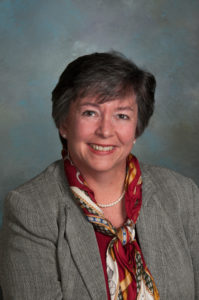
UMW College of Business Dean Lynne Richardson
College of Business Dean Lynne Richardson’s latest column in The Free Lance-Star is entitled, “DECIDE THAT YOU CAN.”
At the 1952 Helsinki Olympics, Great Britain’s Roger Bannister finished the 1,500 meters in fourth place. He determined then that he wanted to be the first person in history to run a mile in less than four minutes.
Why was that a big deal? Because it never had been done. In fact, people thought it was impossible.
But Roger set his goal, created a practice schedule (while training as a doctor), and in 1954 ran the mile in 3 minutes, 59.4 seconds. Bannister had achieved the unthinkable.
After Bannister broke the 4-minute mark, others broke it. Since 1954, more than 1,500 runners have broken the 4-minute mile; the record today is 3:43.13, held by Hicham El Guerrouj.
So many times, we decide that things cannot be done. It becomes a self-fulfilling prophecy. If we don’t believe we can do something different, we want to be right, so we have a mindset that ensures something different is never done. Bannister was told he couldn’t run a mile in less than 4 minutes. He could have accepted it, but he didn’t.
His mindset was such that he determined he could, so he did. And we can do the same. Read more.